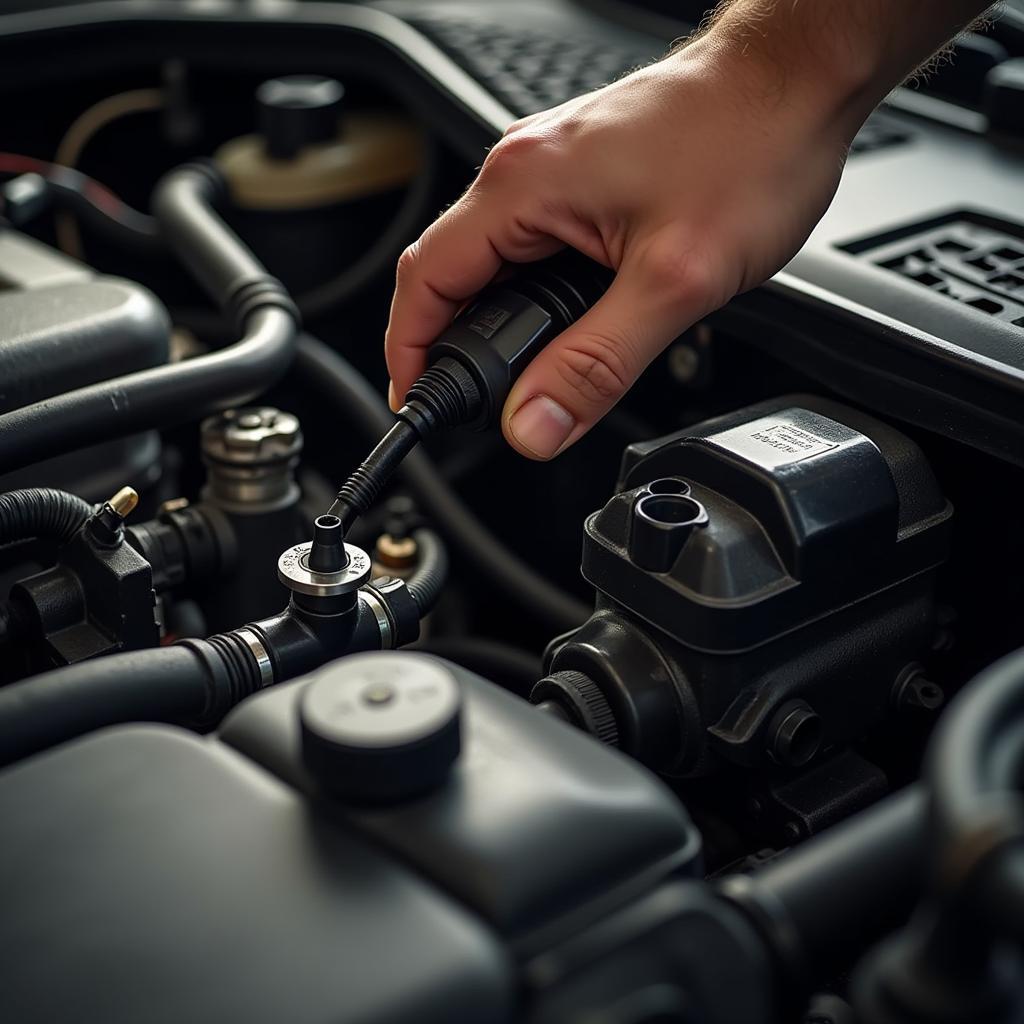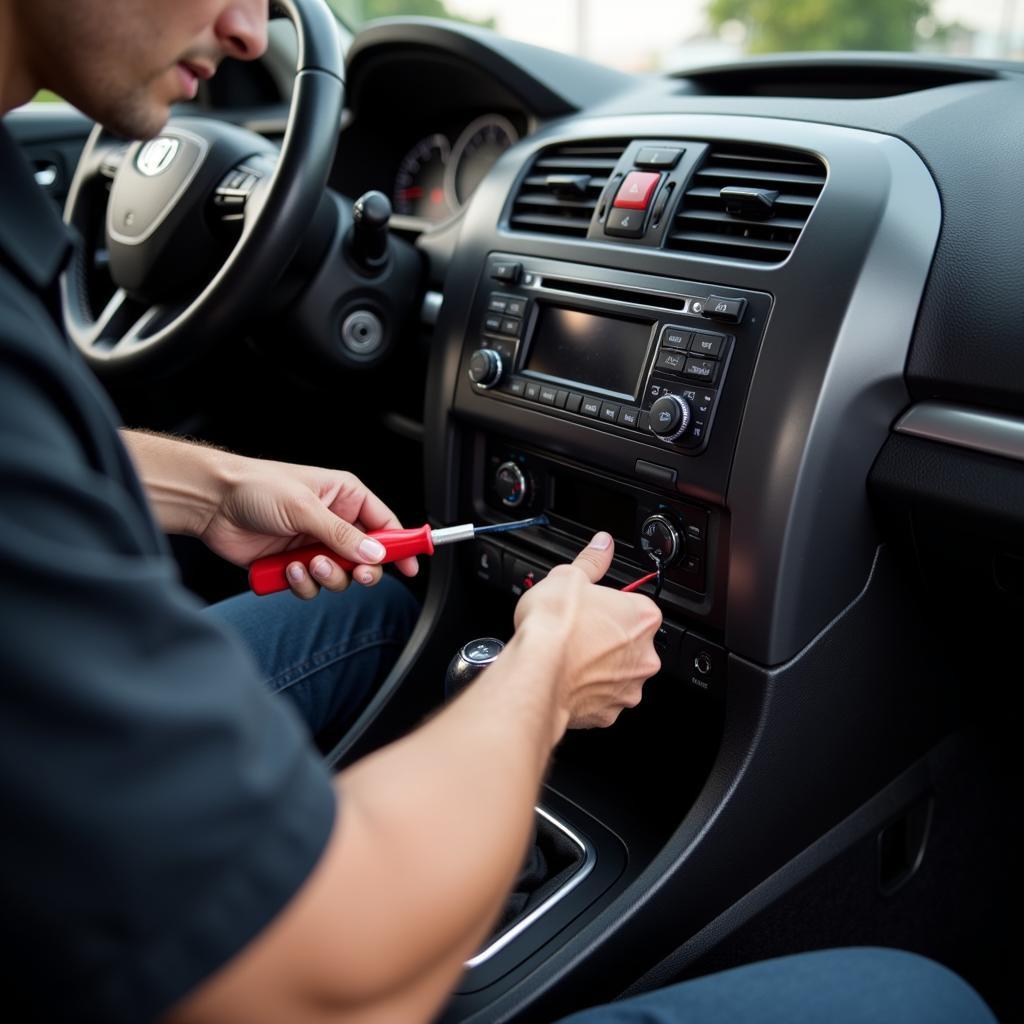A fully charged battery yet your car won’t start? This frustrating situation is more common than you might think. While a dead battery is often the culprit, a car that won’t start with a charged battery indicates other potential issues. This guide will explore the common causes and provide practical solutions to get you back on the road.
A common misconception is that a charged battery guarantees a starting engine. However, several other components play crucial roles in the starting process. After checking for connections to the battery terminals first, check these potential areas out. If your car battery is dead and jump start is not working, it might not be the battery after all!
Beyond the Battery: Identifying the Culprit
While a new battery might seem like the solution, a car won’t start sometimes even with a new battery. If you’ve recently installed a new battery and the car still won’t start, the problem likely lies elsewhere. Several components, from the starter to the ignition system, can prevent your car from starting.
Is it the Starter?
The starter motor is responsible for cranking the engine. A faulty starter can produce a clicking sound when you turn the key, or it might not make any noise at all. Testing the starter involves checking the voltage at the starter solenoid.
“A failing starter is a surprisingly common issue,” says automotive electrical engineer, David Miller. “While many assume it’s the battery, a simple voltage test at the starter can quickly identify the problem.”
Checking the Ignition System
The ignition system provides the spark needed to ignite the fuel mixture in the engine cylinders. A faulty ignition switch, ignition coil, or spark plugs can prevent the engine from starting. Testing these components requires specialized tools and knowledge.
Fuel System Issues
A car needs fuel to run, and if the fuel pump isn’t delivering fuel to the engine, it won’t start. A clogged fuel filter or a faulty fuel pump can cause this issue. You might hear the fuel pump whirring when you turn the key to the “on” position if it’s working correctly. If you don’t hear it, then it may be the problem or a related issue.
 Checking Car Fuel System
Checking Car Fuel System
Common Questions: Car Won’t Start But Battery Is Charged
-
Why won’t my car start even with a jump start? If your car won’t start with a jump start, this may indicate a serious problem such as a faulty starter or a seized engine. Check out this article on reasons your car battery dies for further help. If you have Land Rover battery problems then here is a useful article for that, too.
-
What are the signs of a bad starter? Common signs include clicking sounds when turning the key, a grinding noise when starting, or the engine not cranking at all.
-
How can I test my car’s alternator? A simple voltage test across the battery terminals with the engine running can determine if the alternator is charging correctly.
-
Could it be a blown fuse? Yes, a blown fuse related to the ignition or fuel system can prevent the car from starting. Check your car’s owner’s manual for the fuse box location and diagram.
Getting Back on the Road: Next Steps
A car that won’t start, even with a charged battery, can be frustrating. By systematically checking the starter, ignition system, and fuel system, you can narrow down the cause and take appropriate action. If you aren’t comfortable performing these checks yourself, it’s always best to consult a qualified mechanic. They have the expertise and tools to diagnose and repair the issue efficiently. Remember, a little troubleshooting can save you time and money in the long run. Don’t forget to check if your car battery is dead jump start not working as that article can provide some useful tips! Also, here’s an article to help you further in diagnosing why your car won’t start with jump start.
Finally, if you have a new battery and car wont start, then this article should help you get back on the road.


